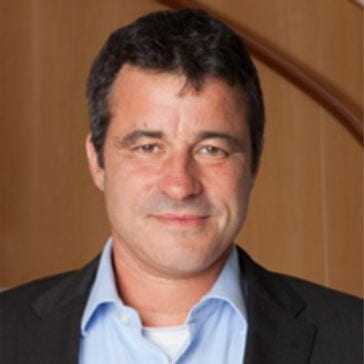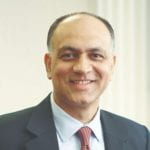Tuesday, October 19th, 2021
9:00 – 10:30 a.m. EDT
via Zoom
We were pleased to invite you to an IIEP/ASU-Thunderbird event on Tuesday, October 19th, entitled “Governing the New Voluntary Carbon Markets.” This event will feature Mark Kenber (VCMI) and Kavita Prakash-Mani (Mandai Nature).
Averting climate catastrophe will require every available tool, including markets. Voluntary carbon markets (VCMs) could complement government policies and drive tens of billions of dollars into activities that sequester greenhouse gases, avoid new emissions, and help move the global economy toward net zero as well as protect and restore nature and benefit people. But markets do not naturally focus on such public purposes. A new multi-stakeholder initiative, the outcome of the recent high-level Task Force on Scaling Voluntary Carbon Markets, now aims to ensure that these markets scale quickly while maintaining their public purpose at the core. Two members of the initiative’s newly formed Board of Directors will draw on their extensive experience to provide insights into the urgent challenges and opportunities of this new kind of market.
This webinar was moderated by Ann Florini of ASU-Thunderbird. IIEP Director Jay Shambaugh and IIEP Distinguished Visiting Scholar Sunil Sharma provided welcoming remarks. This event was co-sponsored by the Thunderbird School of Management, Arizona State University, and the Institute for International Economic Policy at GWU.
About the Speakers:
 Mark Kenbar serves as VCMI’s co-Executive Director for External Affairs. He has worked on environment, climate and energy issues for over two decades, in government, NGOs and the private sector. He is currently Managing Director of Orbitas, a Climate Advisers initiative that aims to make capital providers aware of climate transition risks to investments in tropical soft commodity production and shift their lending and investment decisions accordingly. With a background in development and environmental economics, Mark has worked across various areas of environmental and climate policy, with a particular focus on the use of economic instruments in the pursuit of sustainable development. His previous roles include: Chief Executive of Mongoose Energy Ltd, the UK’s largest developer and manager of community energy projects; Policy Director and later Chief Executive at The Climate Group; Senior Policy Officer at WWF International’s Climate Change Programme; Policy and Programme Director at Fundación Natura in Quito; Climate Change Advisor to the Ecuadorian government; and lecturer at both the Catholic University in Quito and the Institute of Development Studies in the UK. He has recently been elected to the Board of Directors of the TSVCM and is currently also a board member of Community Energy England and Verra, Chair of the Reneum Advisory Council and Brighton and Hove Energy Services Coop and a member of the RE100 Advisory Committee.
Mark Kenbar serves as VCMI’s co-Executive Director for External Affairs. He has worked on environment, climate and energy issues for over two decades, in government, NGOs and the private sector. He is currently Managing Director of Orbitas, a Climate Advisers initiative that aims to make capital providers aware of climate transition risks to investments in tropical soft commodity production and shift their lending and investment decisions accordingly. With a background in development and environmental economics, Mark has worked across various areas of environmental and climate policy, with a particular focus on the use of economic instruments in the pursuit of sustainable development. His previous roles include: Chief Executive of Mongoose Energy Ltd, the UK’s largest developer and manager of community energy projects; Policy Director and later Chief Executive at The Climate Group; Senior Policy Officer at WWF International’s Climate Change Programme; Policy and Programme Director at Fundación Natura in Quito; Climate Change Advisor to the Ecuadorian government; and lecturer at both the Catholic University in Quito and the Institute of Development Studies in the UK. He has recently been elected to the Board of Directors of the TSVCM and is currently also a board member of Community Energy England and Verra, Chair of the Reneum Advisory Council and Brighton and Hove Energy Services Coop and a member of the RE100 Advisory Committee.
 Kavita Prakash-Mani is the CEO for Mandai Nature, a new environmental conservation NGO established in Singapore by Temasek and Mandai Park Holding, with a focus on SE Asia. Mandai Nature helps protect threatened species from extinction, especially those endemic to Asia and often overlooked, addressing such issues as wildlife trade and the fragmentation of habitats. It works with partners to drive nature-based solutions for climate change, and it works closely with local communities and organizations to create economic opportunities and invest in building skills and conservation capacity on the ground. Prior to this, Kavita was the Global Conservation Director at WWF, leading the development of WWF strategy and approach, partnership development and engagement, planning and performance as well as campaigns. Before this position, she led WWF’s global practice on Markets – engaging companies, communities and citizens/consumers. Previously, Kavita was Executive Director of Grow Asia in Singapore (a World Economic Forum initiative); the Global Head, Food Security Agenda at Syngenta International; and Executive Director, SustainAbility in London. She has worked at the World Resources Institute in Washington DC and Glaxo SmithKline in India. Kavita is a member of Unilever Sustainability Advisory Council. She has been on numerous councils and boards including the Tropical Forest Alliance, Science Based Targets for Nature, World Economic Forum Global Agenda Council on Food Security and Nutrition, Volans, SustainAbility Inc., and the Institute for Human Rights and Business. She recently joined the Board of Directors of the new governance body for voluntary carbon markets.
Kavita Prakash-Mani is the CEO for Mandai Nature, a new environmental conservation NGO established in Singapore by Temasek and Mandai Park Holding, with a focus on SE Asia. Mandai Nature helps protect threatened species from extinction, especially those endemic to Asia and often overlooked, addressing such issues as wildlife trade and the fragmentation of habitats. It works with partners to drive nature-based solutions for climate change, and it works closely with local communities and organizations to create economic opportunities and invest in building skills and conservation capacity on the ground. Prior to this, Kavita was the Global Conservation Director at WWF, leading the development of WWF strategy and approach, partnership development and engagement, planning and performance as well as campaigns. Before this position, she led WWF’s global practice on Markets – engaging companies, communities and citizens/consumers. Previously, Kavita was Executive Director of Grow Asia in Singapore (a World Economic Forum initiative); the Global Head, Food Security Agenda at Syngenta International; and Executive Director, SustainAbility in London. She has worked at the World Resources Institute in Washington DC and Glaxo SmithKline in India. Kavita is a member of Unilever Sustainability Advisory Council. She has been on numerous councils and boards including the Tropical Forest Alliance, Science Based Targets for Nature, World Economic Forum Global Agenda Council on Food Security and Nutrition, Volans, SustainAbility Inc., and the Institute for Human Rights and Business. She recently joined the Board of Directors of the new governance body for voluntary carbon markets.
About the Moderator:
 Ann Florini is Clinical Professor at the Thunderbird School of Global Management, Arizona State University, where she directs programs at the Washington, D.C. campus. She was previously Professor of Public Policy at Singapore Management University founding director of the Centre on Asia and Globalisation at the National University of Singapore; and a Senior Fellow at the Brookings Institution. She has spearheaded numerous international initiatives on global governance, energy and climate policy, and cross-sector collaborations including government, civil society, and the private sector. Her many books and articles have addressed governance in China, transparency in governance, transnational civil society networks, and the role of the private sector in public affairs. Dr. Florini received her Ph.D. in Political Science from UCLA and a Masters in Public Affairs from Princeton University.
Ann Florini is Clinical Professor at the Thunderbird School of Global Management, Arizona State University, where she directs programs at the Washington, D.C. campus. She was previously Professor of Public Policy at Singapore Management University founding director of the Centre on Asia and Globalisation at the National University of Singapore; and a Senior Fellow at the Brookings Institution. She has spearheaded numerous international initiatives on global governance, energy and climate policy, and cross-sector collaborations including government, civil society, and the private sector. Her many books and articles have addressed governance in China, transparency in governance, transnational civil society networks, and the role of the private sector in public affairs. Dr. Florini received her Ph.D. in Political Science from UCLA and a Masters in Public Affairs from Princeton University.
Welcome Remarks:
 Jay Shambaugh is Professor of Economics and International Affairs, and Director of the Institute for International Economic Policy at the Elliott School of International Affairs, George Washington University. His area of research is macroeconomics and international economics. He has had two stints in public service. He served as a Member of the White House Council of Economic Advisors from 2015-2017. Earlier, he served on the staff of the CEA as a Senior Economist for International Economics and then as the Chief Economist. He also spent 3 years as the Director of the Hamilton Project at the Brookings Institution. Jay is also a Faculty Research Fellow at the NBER and Non-Resident Senior Fellow in Economic Studies at Brookings. Prior to joining the faculty at George Washington, Jay taught at Georgetown and Dartmouth and was a visiting scholar at the IMF. He received his Ph.D. in economics from the University of California at Berkeley, an M.A. from the Fletcher School at Tufts, and a B.A. from Yale University.
Jay Shambaugh is Professor of Economics and International Affairs, and Director of the Institute for International Economic Policy at the Elliott School of International Affairs, George Washington University. His area of research is macroeconomics and international economics. He has had two stints in public service. He served as a Member of the White House Council of Economic Advisors from 2015-2017. Earlier, he served on the staff of the CEA as a Senior Economist for International Economics and then as the Chief Economist. He also spent 3 years as the Director of the Hamilton Project at the Brookings Institution. Jay is also a Faculty Research Fellow at the NBER and Non-Resident Senior Fellow in Economic Studies at Brookings. Prior to joining the faculty at George Washington, Jay taught at Georgetown and Dartmouth and was a visiting scholar at the IMF. He received his Ph.D. in economics from the University of California at Berkeley, an M.A. from the Fletcher School at Tufts, and a B.A. from Yale University.
 Sunil Sharma is a Distinguished Visiting Scholar at the Institute for International Economic Policy, Elliott School of International Affairs, The George Washington University, Washington, D.C., USA, and a Senior Associate at the Council on Economic Policies, Zurich, Switzerland. He was Assistant Director in the IMF’s Research Department from 2015-2018, and the Director of the IMF- Singapore Regional Training Institute (STI) in Singapore from 2006-2015. Before moving to Singapore in 2006, he was Chief of the IMF Institute’s Asian Division in Washington, D.C. Prior to joining the IMF in 1992, Dr. Sharma was on the Economics faculty at the University of California, Los Angeles (UCLA). He has a Ph.D. and M.A. in Economics from Cornell University, a M.A. from the Delhi School of Economics, and a B.A. (Honors) from St. Stephen’s College, Delhi University. His current interests include rethinking capitalism and democracy, systemic hazards, complex systems, the international financial architecture, and the institutional structure and design of financial regulation.
Sunil Sharma is a Distinguished Visiting Scholar at the Institute for International Economic Policy, Elliott School of International Affairs, The George Washington University, Washington, D.C., USA, and a Senior Associate at the Council on Economic Policies, Zurich, Switzerland. He was Assistant Director in the IMF’s Research Department from 2015-2018, and the Director of the IMF- Singapore Regional Training Institute (STI) in Singapore from 2006-2015. Before moving to Singapore in 2006, he was Chief of the IMF Institute’s Asian Division in Washington, D.C. Prior to joining the IMF in 1992, Dr. Sharma was on the Economics faculty at the University of California, Los Angeles (UCLA). He has a Ph.D. and M.A. in Economics from Cornell University, a M.A. from the Delhi School of Economics, and a B.A. (Honors) from St. Stephen’s College, Delhi University. His current interests include rethinking capitalism and democracy, systemic hazards, complex systems, the international financial architecture, and the institutional structure and design of financial regulation.
IIEP Rethinking Capitalism and Democracy Series
The COVID-19 pandemic, like the global financial crisis a decade ago, has laid bare the cracks in the leading capitalist democracies. Fissures in the political, social, economic, and financial orders, accompanied by an increasingly stressed natural environment, pose serious and possibly existential threats to these societies, as exploding income and wealth inequality subverts the integrity and fairness of markets and elections, weak regulatory oversight increases the likelihood and severity of the next crash, and the visible effects of climate change threaten lives and livelihoods and drive migrations. The three spheres of wellbeing – political and social, economic and financial, and the natural environment, are each becoming more fragile while their complex interrelationships are producing wicked challenges. The IIEP webinar series on Rethinking Capitalism and Democracy examines these difficult questions and possible policy responses.
Thunderbird Finance and Sustainability Series
The global financial system is facing new pressures to become “sustainable” – not only financially stable, but simultaneously environmentally friendly and socially inclusive. These pressures are partly political, in reaction to the increasing financialization of the global economy and the sector’s failure to steer investment to meet the needs of society. New financial technologies (“fintech”) pose yet more pressures on incumbent financial institutions but also offer great opportunities for the creation of what some are calling “citizen-centric” finance. Top public authorities are convening in the new Network of Central Banks and Supervisors for Greening the Financial System. The private sector has already moved rapidly from CSR to considering broader forms of ESG (environmental, social, governance) risks and opportunities in investments. Thunderbird’s Finance and Sustainability webinar series explores these urgent questions with leading practitioners and thinkers.
